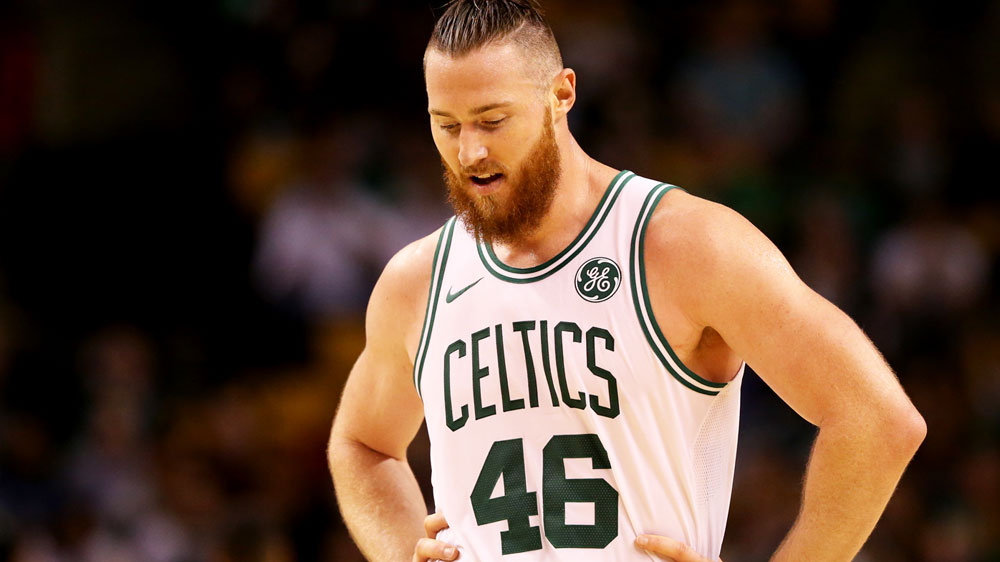
Matt Nussbaum, general counsel for the Major League Baseball Players Association, said a regulation allowing the Gaming Commission to disqualify certain people from betting in Massachusetts if they threaten players or their families "is going to encourage players to come forward" when they are targeted.įehr said he wanted the commissioners to keep in mind that "the gaming company has no relationship whatsoever with the players. Oftentimes, the teams and the leagues they struggle a little bit when it comes to enforcing discipline on fans because fans are the ones that are driving the revenue." "When you have more betting, you have increased tension, increased anxiety and increased anger. I think we're in a unique position to explain that oftentimes they actually are not, and need a gentle or forceful nudge from government bodies," David Foster, deputy general counsel to the National Basketball Players Association, said. "There's always a thought that the leagues or the teams are best suited to handle some of these issues, for example, when it comes to safety. The man pleaded guilty in 2019 and was sentenced to 18 months in prison.
CELTICS COMMENTATOR PROFESSIONAL
attorney for Massachusetts announced charges against a 23-year-old former Babson College soccer player from California who posted death threats to the Instagram accounts of at least 45 professional and college athletes.

In 2019, as state lawmakers were considering legalizing sports betting here, the U.S. In the letter and during Monday's commission meeting, the player representatives cited situations of unruly fan behavior "in which players' safety has been at risk including one at the TD Garden." The group cited a 2018 incident in which a fan threw a beer at Tyreek Hill during a Patriots game, and a handful of other incidents around the country. More: A developer has plans for a Plymouth horse racing track. and other countries, and they and their families should be protected by Massachusetts regulations." These instances have already occurred in different parts of the U.S. In a September letter in which it gave examples of specific language it would like to see included in Massachusetts regulations, the group said the players it represents "know that they will be targeted by potential losing sports bettors, and importantly, know that their family members will also be targeted. All we are asking for today in this process is that you consider some things that will make things safer, and make sports betting better and more fair." "And yet, we are not here today with our hand out asking for money. Quite literally the revenue is generated entirely by the performance of the players," Steve Fehr, special counsel to the National Hockey League Players Association, said. This industry, the sports betting industry, is built on the backs of the players. The group said it was open to a host of options, from prohibiting people who make threats from betting in Massachusetts to shutting down all betting here on a particular game or sport. The Players' Association, a collective that includes representatives from the NFL, MLB, NBA, NHL and Major League Soccer players' associations, has asked the commission to include language in its regulations to outline safety measures for players, family members and game officials, and the penalties for fans and bettors who make threats against them. The state will charge in-person gambling operators an excise tax of 15% on anticipated gambling revenues and a 20% tax on anticipated revenues for mobile or online wagers.Īs sports betting is about to begin, athletes' representatives are concerned about the safety of the players and their families, and have asked the state Gaming Commission to step in. Of that, 15% will be allocated to the state Department of Public Health for research into and mitigation of gambling-related harm.
CELTICS COMMENTATOR PLUS
While the state initially expected about $60 million in tax revenue from sports wagering, in a recent WCVB-TV interview state Treasurer Deb Goldberg said the tax revenue could be more in the range of $30 million to $50 million a year, plus about $80 million in application and licensing fees.


The Legislature, however, did approve betting on college sports involving teams from out-of-state schools. One thing state residents will not be able to wager on: Any athletic events involving in-state NCAA colleges and universities.
CELTICS COMMENTATOR FREE
An iPad displays the types of free bets that could be placed at the Golden 1 Center's Skyloft Predictive Gaming Lounge in Sacramento, Calif., March 19, 2019.


 0 kommentar(er)
0 kommentar(er)
